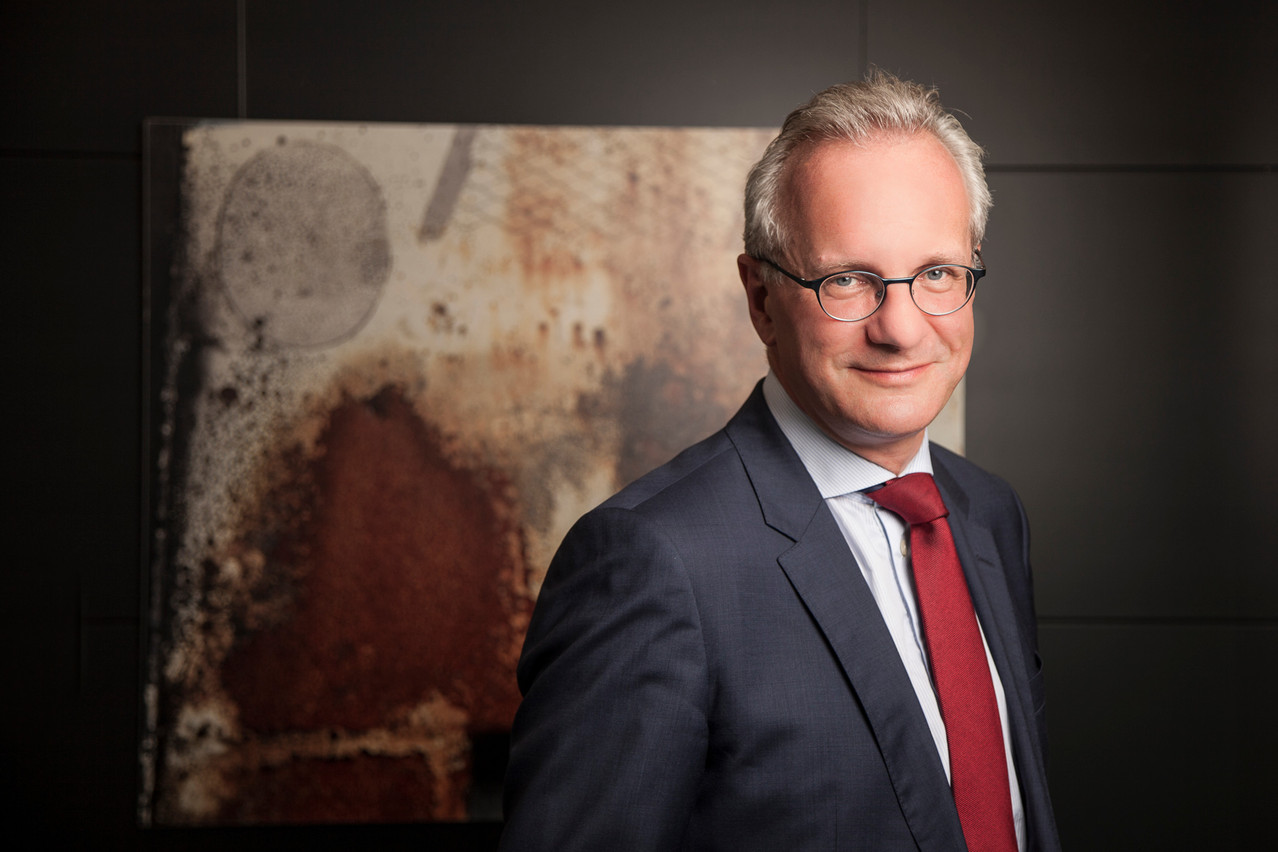“From January to April, I fear hail and storms. From April to September, I do not sleep because of flooding risk. From September until December, it is again flooding and storms. As for tornados, it is all year-round,” said , CEO at Foyer, during an interview at their premises in Leudelange.
Climate change is altering the catastrophe landscape
“The insurers and reinsurers are confronted with events that we did not know 20-30 years ago.” Lauer explained that Luxembourg experienced a tornado in 2019, a phenomenon rarely seen in the country before and a flash flood in 2021. “It is difficult to deny that that temperatures are rising. It has an impact on storms, droughts and floods.”
An insurer knows how to manage risk, but it is not a specialist at managing uncertainty.
The tornado undeniably troubled Lauer, with a financial impact of more than €60m for all Luxembourg insurers in 2019. Since then, he noted that there has been another tornado in the Eifel region in Germany, not very far from Luxembourg.
Yet Lauer suggested that the point whereby Foyer would not cover a risk in Luxembourg on the back of climate change has not been reached yet.
Adapting to unknown unknown
“An insurer knows how to manage risk, but it is not a specialist at managing uncertainty,” observed Lauer. Given recent climate change developments, he thinks that uncertainty is quite important and therefore the frequency and the intensity of natural disasters such as storms, drought and floods are yet unclear.
Not so unknown anymore
The recent tornado took domestic insurers by surprise. It is no longer underestimated, according to Lauer. Yet it is difficult to forecast new risks. Foyer is assessing, for instance, whether future droughts may result in cracks in buildings, putting their stability at risk.
Surprisingly for newcomers, despite the country’s showery climate, insurance protecting against flooding was not offered in Luxembourg by insurers until not later than 10 years ago, according to Lauer.
On the back of increasing flooding risk, the insurance sector agreed with the ministry of finance that every single insurer would offer the coverage to their client as an option. He noted that more than 90% of their clients are now insured against risk of storms and and over 70% are insured against flooding.
The proactive role played by insurers to safeguard their solvency
“Domestic insurers are working at better understanding their risk.” Lauer explained that the analysis is performed through a geolocation that goes as far down as looking at the level of a specific building. The data points are feeding models developed and provided by reinsurers and reinsurance brokers to assess the probabilities and the intensity of various events.
You have to prepare today for the catastrophes of tomorrow
“Insurers are champions in collecting and processing internal and external data such from weather forecasts,” said Lauer. Moreover, these models are updated to account for the recent events. He warned, though, that a model is an “imperfect reproduction of reality” and that models only perform well when they are fed with enough data.
For a small country such as Luxembourg, the mutualisation of risk is key. Lauer explained that they solely use reinsurance products to transfer risk out of their balance sheet. In other words, Foyer, as for many other primary insurers in the world, is contracting insurance policies with reinsurance companies to protect themselves against large risks.
Education and communication to reduce the impact of catastrophes
“You have to prepare today for the catastrophes of tomorrow,” said Lauer. Insurers are playing some roles at minimising the impact of catastrophes though education. Ahead of a storm, “it might be a good idea to remove your car if it is parked at the minus two level.”
Moreover, the role of the state is central as it must alert the population sufficiently in advance. As such, the insurance sector regularly communicates with the state on what is “possible, necessary and desirable to minimise tomorrow’s cost of a catastrophe.”
Hands-on role by the regulators
As the domestic regulator and the European Insurance and Occupational Pensions Authority, or EIOPA, must ensure the solvency of the insurance sector, “They must think [hard] about scenarios that may result into the insolvency of companies,” said Lauer. The risks that are keeping the regulators awake at night are very similar to individual insurers such as Foyer.
Lauer noted that the EIOPA made a list of recommendations. Surprisingly, the European regulator is reported to have stated that the “risk of flooding is non-existent in Luxembourg.” Rest assured; the domestic regulator has a different perspective. (In a communication sent to Delano, EIOPA wrote that it does “not recall having made such assessments or similar statements regarding flood risk in Luxembourg.”)
Text edited to reflect the view of EIOPA sent to Delano on 30 October 2023
This article was published for the Delano Finance newsletter, the weekly source for financial news in Luxembourg. .


